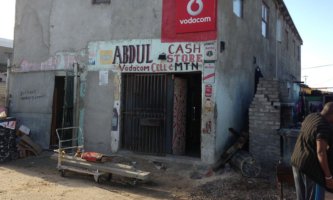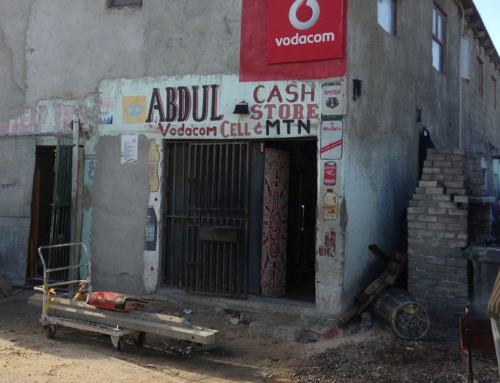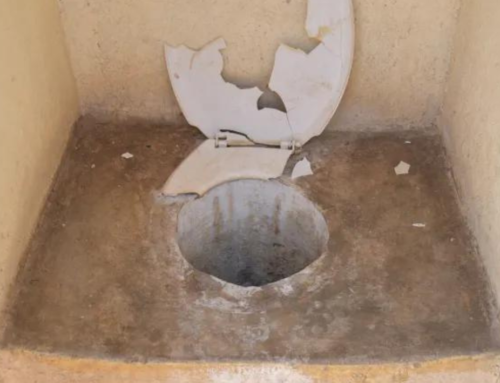 Opinion by Nqabayomzi Kwankwa, UDM Deputy President and Leader in Parliament
Opinion by Nqabayomzi Kwankwa, UDM Deputy President and Leader in Parliament
The United Democratic Movement (UDM) is firmly of the opinion that spaza shops play an integral role in South Africa’s economy, especially in the township economy. These shops usually provide the communities they serve with goods which accommodate the immediate needs and wants of consumers. They offer much needed employment opportunities, especially for women in job scarce areas.
This sector is lucrative to the economics of South Africa; according to the 2021 South African Township Marketing Report by RogerWilco, spaza shops bring a staggering 5.2% to the country’s GDP. This is evidence which clearly showcases the economic significance of spaza shops.
Despite this, this sector faces pressing issues which undermine the livelihoods of local small-scale spaza shop entrepreneurs, the safety of the communities they serve and to a certain extent, our laws.
When we go back in time, spaza shops were a source of economic empowerment for Black South Africans in townships, allowing them to thrive as entrepreneurs; success stories which are still fondly told in almost any township you visit in South Africa.
Over the years though, the goalposts have shifted dramatically. In the present day a majority of these shops, which once thrived under Black South Africans, are now owned by foreign nationals, many of whom are alleged to be operating illegally within the country. This has led to a monopolisation of the sector, making it increasingly difficult for South African entrepreneurs to compete, especially regarding the pricing of goods.
Another pressing issue circulating foreign-owned spaza shops is the lack of formal regulation in the spaza sector. The reason for this is that many foreign-owned spaza shops are not properly registered with the South African Revenue Service (SARS), enabling them to evade taxes in several ways, such as failing to submit returns, submitting nil returns falsely or frequently re-registering under new business names or simply not even registering their companies or even business bank accounts. This loophole not only disadvantages those local spaza shop entrepreneurs who are compliant but also denies the country of significant revenue which is needed.
Spaza shops have also been posing serious health risks to the communities they service. There have been widespread incidents of tragic deaths of children who have been reported to have consumed contaminated snacks purchased from spaza shops as a result of consuming counterfeit goods, such incidents indicate a great need for urgent oversight and regulation within the sector.
The National Health Act, 2003 (Act No. 61 of 2003) plays a crucial role in this discussion. The Act mandates that all businesses dealing with food or other consumables adhere to strict health and safety standards. However, many spaza shops operate in violation of these standards, selling goods that are either counterfeit, expired, or hazardous to public health. The lack of compliance with the National Health Act not only endangers residents but also erodes trust in the local economy. Stricter enforcement of this Act by officials is essential to ensure that spaza shops operate in ways that protect the health of the communities they serve.
The National Small Enterprise Act on the other hand was designed to empower South African entrepreneurs, particularly in historically disadvantaged communities, by promoting small businesses. However, foreign nationals have often outcompeted local entrepreneurs in the township economy, frequently through informal means. For the Act to fulfil its intended purpose, the government must take practical steps to support local businesses through improved access to funding, training, and regulatory assistance. Together, these acts underscore the need for a balanced approach to protecting local business interests and upholding legal requirements for all.
To address these pressing issues, the South African government must take decisive action. Minister in the Presidency Khumbudzo Ntshavheni recently announced plans to crack down on illegal spaza shops, targeting those that operate outside of formal regulatory frameworks. According to media reports, the initiative aims to ensure that all businesses are properly registered, pay their taxes, and comply with health and safety regulations.
This crackdown is a step in the right direction and utmost effort should be given to its implementation, as it aligns with the objectives of both the National Small Enterprise Act and the National Health Act in ensuring fairness and public safety in the sector.
The township economy boasts a lot of potential for creating jobs, contributing to the reduction of poverty and cultivating entrepreneurship. For this potential to be fully realised South African spaza shop entrepreneurs cannot be left behind and must be put first.
The UDM advocates for the reservation via legislation – such as in other parts of the world – certain enterprises solely for South African citizens, such as but not limited to, the sale of goods or provision of services in a market, petty trading or hawking or selling of goods in a stall at any place and spaza shops.
The country needs to reclaim local ownership and promote a safer, more equal township economy for its people. By showing support to well-deserving entrepreneurs whilst enforcing compliance and regulation, the government can once again enable the spaza shop sector to go back to its glory days of being a vehicle of empowerment and a beacon of hope for South African townships.































Leave A Comment